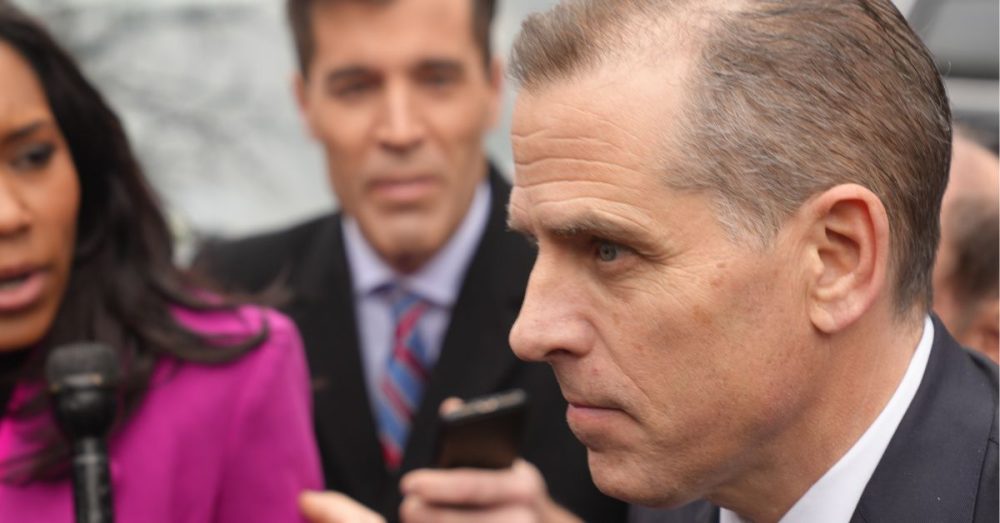Hunter Biden is anticipated to stand trial in September for allegedly avoiding paying millions of dollars in taxes related to his connections with the Ukrainian gas company Burisma and other international business activities.
Hunter is also under investigation for purportedly not registering under the Foreign Agents Registration Act (FARA). Prosecutors disclosed that they possess proof of Hunter reaching out to the State Department on behalf of a Romanian real estate mogul confronted with corruption allegations. ZeroHedge reported that there are currently no specific intentions to prosecute Hunter under FARA.
Less than seven days after Joe Biden dropped out of the presidential race, the State Department made public records indicating that Hunter had requested help from the U.S. government to finalize a deal with Burisma during his father’s tenure as Vice President.
The New York Post also reported that Burisma paid Hunter $83,333 monthly for his board position but reduced his pay by half two months after his father finished serving as vice president.
Here is more of what ZeroHedge reported on Hunter and his emerging skeletons:
While Joe Biden was vice president, his son Hunter attempted to obtain State Department assistance in securing a deal for Ukrainian gas company Burisma, of which Hunter was a highly-compensated board member despite having no experience in its industry, the New York Times reported on Tuesday. The revelation of the 2016 episode underscores allegations that Hunter sought to enrich himself by trading on his father’s influence.
The Times report draws on newly-released government records pertaining to Hunter’s pushing of a Burisma deal in Italy. The Biden White House had resisted releasing the files for years, only to relent soon after Biden was pressured into abandoning his reelection bid.
The Times says it was unable to read Hunter’s email to the US ambassador, as it appears to have been “redacted in its entirety” somewhere within the trove of documents turned over by the government. However, in communications sparked by Hunter’s 2016 inquiries, federal government officials appear to have been anxious about Hunter’s request. For example, a Commerce Department official assigned to America’s embassy in Rome wrote:
“I want to be careful about promising too much. This is a Ukrainian company and, purely to protect ourselves, USG should not be actively advocating with the government of Italy without the company going through the [Commerce Department] Advocacy Center.”
The White House told the Times that then-Vice President Biden had no knowledge of his son’s inquiries. Hunter’s attorney, Abbe Lowell, acknowledged that Hunter asked US ambassador to Italy John R. Phillips and “various people” for help facilitating a dialogue between the president of Tuscany and Burisma leaders. “No meeting occurred, no project materialized, no request for anything in the U.S. was ever sought and only an introduction in Italy was requested,” Abbe told the Times. Burisma was pursuing a geothermal energy project.
Though Burisma didn’t respond to inquiries, an unnamed businessman associated with the Italian machinations told the Times that Biden’s moves came when Burisma or partner entities were struggling to obtain regulatory approval for a geothermal project. The initiative was also the subject of communications that were found in Hunter’s infamous laptop, which he abandoned at a Delaware repair shop. For example, Hunter business partner Eric Schwerin wrote an email to an Italian businessman who had connections to Tuscany’s president. “Burisma is hoping that some of its executives can get a meeting with the president to discuss their geothermal business in Tuscany,” he wrote in July 2016.
Meanwhile, the government records seem to suggest a persistent effort by Hunter across multiple US government channels. “The Ambassador already replied to one letter from Mr. Biden. He may be shopping for more support than he got here,” a Commerce official emailed other federal officials.
Then-Ambassador Phillips told the Times that he didn’t remember Hunter’s request. “I certainly would pay attention to it,” he said. “Out of courtesy, I’d probably make sure he got a response of some sort, but not necessarily from me. And I wouldn’t even want to encourage it, because I wouldn’t get us involved in something like that.”


